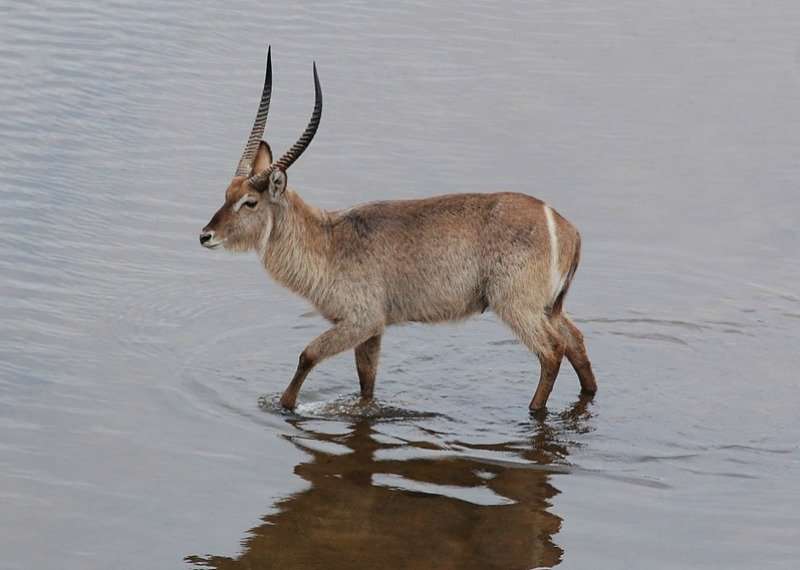African Waterbuck Hide
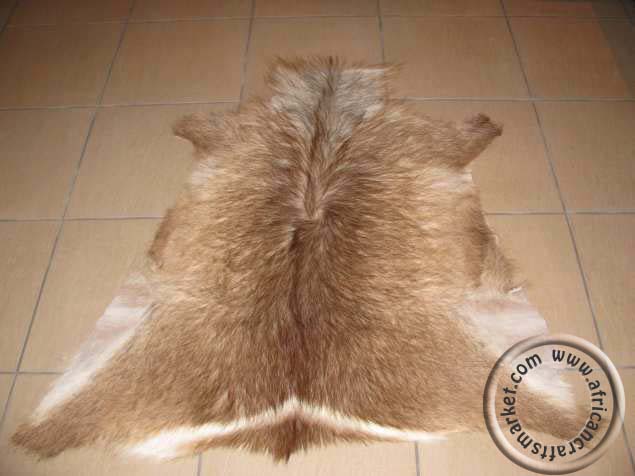
Click on image for larger view
African Waterbuck skin / hide
$190-00
Region: South Africa
Material: Leather / hide
Size: 140cm x 120cm (L x H)
African Waterbuck Hide
Size: 140cm x 120cm (L x H)
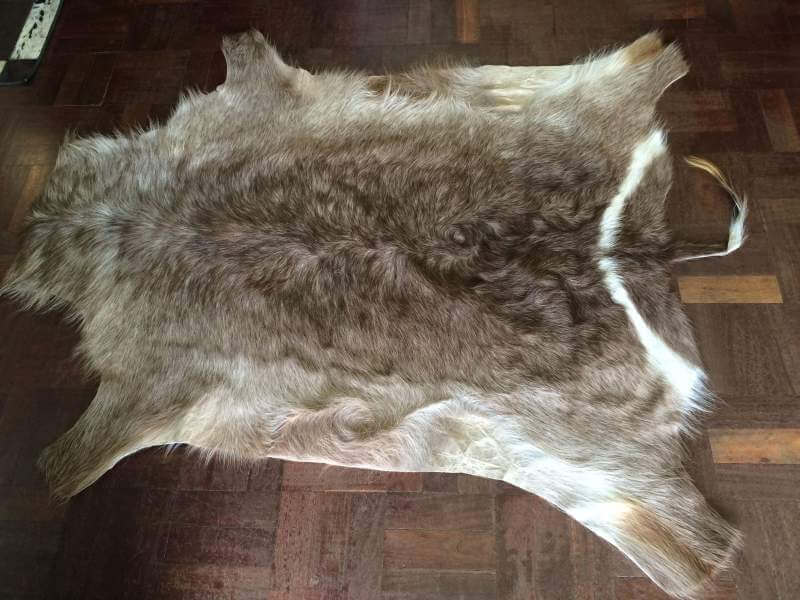 A large A grade softly tanned African Waterbuck hide. The Waterbuck is a large Antelope that is found in Southern Africa and is known for the white ring that can be found on the rump of the Waterbuck. The Waterbuck has a long body and neck and short legs. It's hide is a brown/Gary color and the hair is medium and shaggy in length. The hair seems to be waterproofed by skin glands that have been adapted to the lengthy time these animals stay in and around water.
A large A grade softly tanned African Waterbuck hide. The Waterbuck is a large Antelope that is found in Southern Africa and is known for the white ring that can be found on the rump of the Waterbuck. The Waterbuck has a long body and neck and short legs. It's hide is a brown/Gary color and the hair is medium and shaggy in length. The hair seems to be waterproofed by skin glands that have been adapted to the lengthy time these animals stay in and around water. 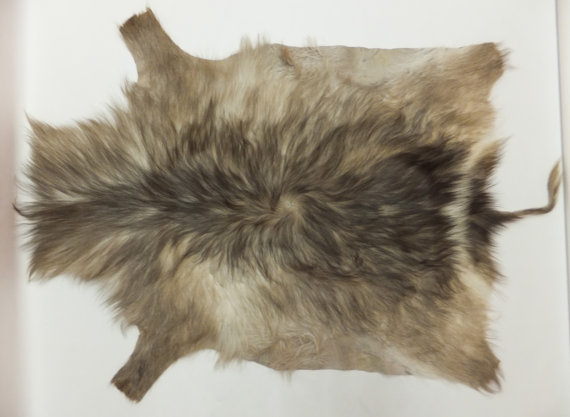
The Waterbuck is a territorial animal and does not immigrate only moving around in search of water. These animals are not large in numbers in Southern Africa . Usually you will found around 10 Females to 1 male and males compete fearlessly for the heard. A male Waterbuck can weight around 260 kg's.
We are registered with KZN Wildlife in KwaZulu Natal, South Africa who are our local conservation authorities in our area, we obtain any documentation needed from them for any items that is needed for your country. You can feel assured that you have bought from a legal, registered trader.
Because of the nature of this type of products the pictures on this page are not the actual item you will receive The product will be similar with slight differences in size, look or color.
If you are looking for other African game skins return to our main African game skin page
Other information

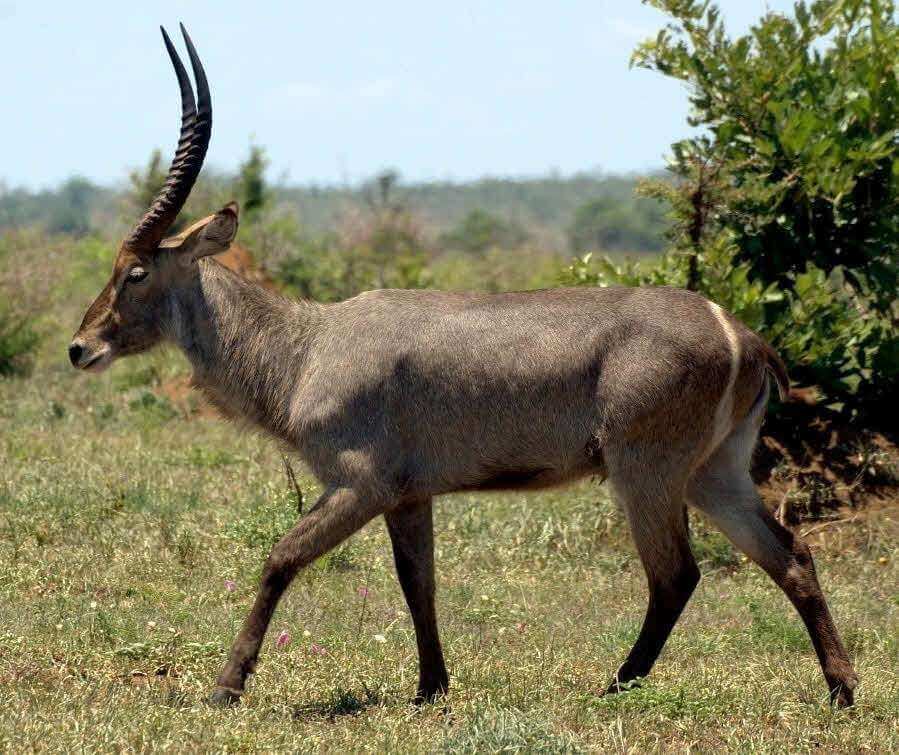
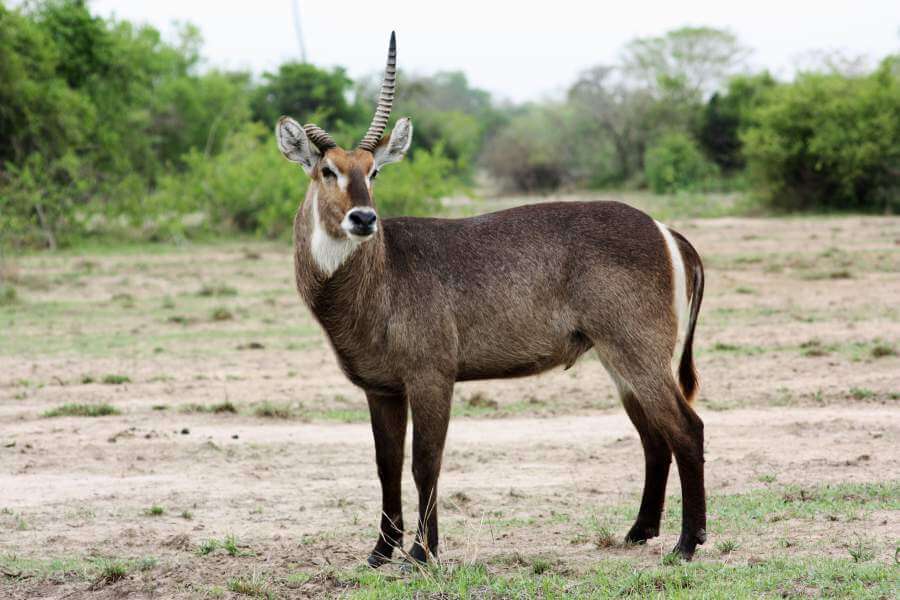
Facts about this animal
The Waterbuck is the largest of the antelopes. It is known for its trademark white ring around the hindquarters which they use as a 'follow me' sign. If one of the group spots a predator and runs, the rest will follow to avoid becoming prey.
The Waterbuck has a long-haired, often shaggy brown-gray coat that emits a smelly, greasy secretion thought to be for waterproofing. In East Africa two types occur, the common Waterbuck and the defassa Waterbuck, distinguished only by the white pattern on the rump. The common Waterbuck has a conspicuous white ring encircling a dark rump, while the defassa has wide white patches on either side of the rump. They are stockily built, with short legs.
These large antelopes drink water daily and also prefer the quality grass that grows along river edges and on flood plains. They are mainly grazers with a preference for long grass. These African wild animals browse occasionally on plants, shrubs or trees.
These Africa animals lack both speed and endurance so they depend a lot on cover as a refuge from predators. They readily take to water to avoid predators. The meat of older Waterbuck takes on an unpleasant odor from the waterproofing secretions of its sweat glands, prompting predators to choose other prey. If the defessa and common Waterbuck have bordering ranges they often interbreed; as a result, some scientists consider the two groups as a single species.
A gregarious animal, female Waterbuck congregate in herds of as few as two females to larger herds of 60. Males have territories of up to 1km² (near permanent water) which they occupy as dominant males for up to 10 years when they may be ousted by a younger dominant male. Their horns are then used, with sometimes lethal results, when males fight one another over the territory.
Factsheet
Scientific classification
- Scientific Name: Kobus ellipsiprymnus
- Size: Male = shoulder 130 cm; Female = shoulder 120 cm tall.
- Weight: Male = weigh 198 - 260 kgs ; Female =160 - 210 kgs
- Lifespan: 12 years in the wild
- Habitat: close to water
- Diet: Grazers
- Gestation: 9-10 months
- Predators: Lions, cheetahs, hyenas, leopards, crocodiles,humans
Conservation status: Least concern / abundant

